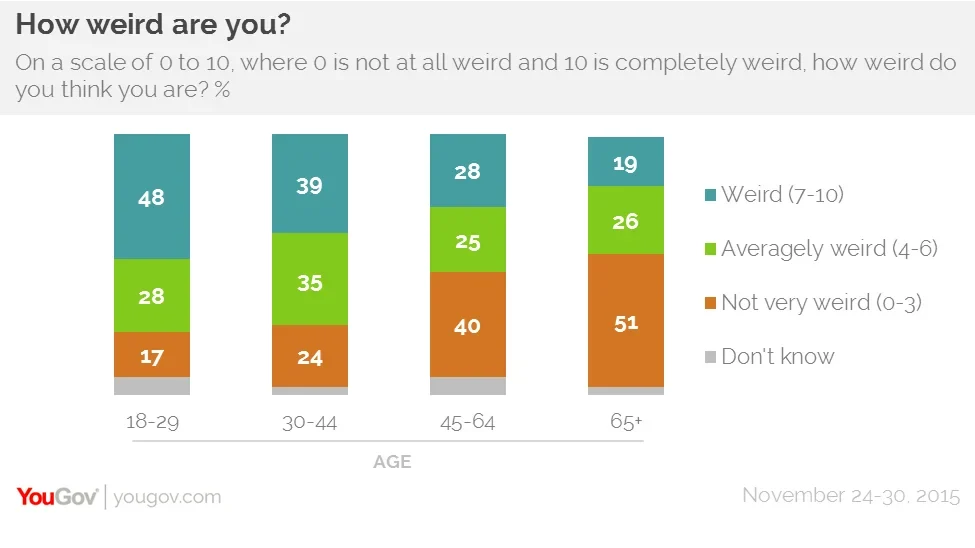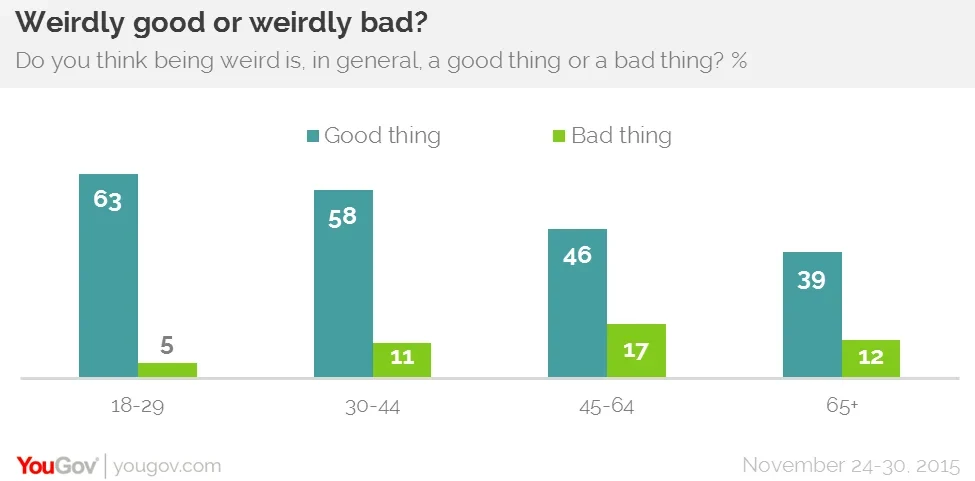Half of under-30s say that they are weird and most say that being weird is a good thing
Since the days of Socrates the elderly have complained about the falling standards of the youth, while the young inevitably grow up to complain about how today's crop of youngsters fail to adhere to the norms that they now hold dear. For now, youth culture seems more than ever to be embracing the different and the downright weird.
The latest research from YouGov shows that, when asked to categorize themselves, Americans divide up roughly equally into the weird, the not weird and those stuck in the middle. People were asked to rate how weird they were on a scale of 0 to 10, where 0 is 'not at all weird' and 10 is 'completely weird'. Overall 33% of Americans say that they are in the bottom four levels of weirdness (0-3), while 28% say that they are in the middling range of weird (4-6). 34% say that they are weird, placing themselves at 7 or above.
There is a significant age difference, however, as 48% of Americans under the age of 30 rate themselves as a 7 or higher, compared to only 19% of over-65s. Similarly only 17% of under-30s say that they aren't very weird (0-3), while 19% of over-65s say that they are weird.

Only 12% of Americans say that being weird is, in general, a bad thing. Young Americans are significantly more likely than their elders to say that being weird is actually a good thing, however. 63% of under-30s say that being weird is a good thing, compared to only 39% of over-65s.

Despite the divide over weirdness, most Americans regardless of age are still fundamentally individualist. Overall 78% of Americans think that it is better to be 'a distinctive individual' and only 11% say that it is best to 'fit in with the crowd', with no noticeable difference between age groups.
Full poll results can be found here and topline results and margin of error here.









